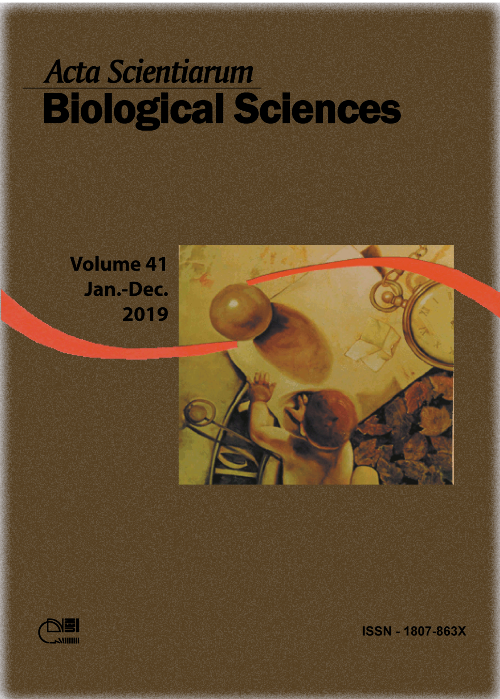Effects of bovine enterovirus and type 1 diabetes on liver and kidney pyruvate kinase activity in an animal model
Abstract
Type 1 diabetes (T1D) is an autoimmune disease characterized by the selective destruction of pancreatic beta cells. In addition to genetic factors, enteroviruses have been considered the main environmental factor involved in this pathology. Therefore, the objective of this study was to evaluate the effects of streptozotocin-induced diabetes and bovine enterovirus (BEV) on liver and kidney pyruvate kinase activity in rats. Fourteen male Wistar rats were divided in three groups: control, diabetes and a third group, which was fed with water experimentally contaminated by BEV. Increased blood glucose levels were found in both diabetes and enterovirus groups, whereas there were no alterations in the lipid profile. A reduced pyruvate kinase activity was observed in the liver and kidney of animals from diabetes and enterovirus groups. Under our experimental conditions, the ingestion of water experimentally contaminated by BEV induced alterations in glycaemia, and also interfered in the pyruvate kinase activity in liver and kidney of the rats, which might be one of the possible mechanisms involved in the T1D development.
Downloads
DECLARATION OF ORIGINALITY AND COPYRIGHTS
I Declare that current article is original and has not been submitted for publication, in part or in whole, to any other national or international journal.
The copyrights belong exclusively to the authors. Published content is licensed under Creative Commons Attribution 4.0 (CC BY 4.0) guidelines, which allows sharing (copy and distribution of the material in any medium or format) and adaptation (remix, transform, and build upon the material) for any purpose, even commercially, under the terms of attribution.
Read this link for further information on how to use CC BY 4.0 properly.












1.png)




3.png)













